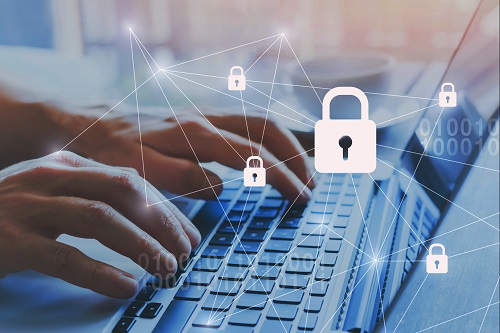Securing Your Information
Many of us use the internet for a large portion of our everyday lives, and the possibilities of what we can do on the internet is endless. There’s online banking, online shopping, online bill pay, and so much more. Each online activity we complete uses or saves a certain amount of our personal information. Should the wrong people get a hold of this information it could put you at risk for becoming a victim of fraud. Don’t fear though – there are some easy steps you can take to secure your personal information on the internet.
Passwords
Most internet users know that when a website asks us to create a password they usually have several rules and requirements to create a valid password. While these may sometimes seem silly, they are there to protect you. The longer and more complicated your password is, the less likely a hacker or scammer is to guess it. To best safeguard your password,1 use a combination of uppercase and lowercase letters, numbers, and symbols, and be sure to use a different password for each site that you access.
Encryption
Another way that you can further protect your personal information is through the use of encryption software.2 This software helps protect your information as it mixes up the information that you’re sending across the internet. You’ll be able to tell if your information is encrypted by the presence of a “lock” icon in front of the URL. Some encryption software is available to purchase, but there are also free encryption tools available that will help you better protect your personal information
Security Questions
Many websites offer the ability to select and answer security questions as a way of recovering your login information should you forget it. However, it is possible that a hacker could guess your answers and gain access to your accounts. When selecting security questions3 and answers, be sure to choose questions that only you would know the answer. Avoid choosing security questions that could easily be found through means such as social media. Oftentimes, we have our pets, schools, and family members listed directly on our social media pages, making this easy information for a hacker to find.
While the idea of scammers and hackers can be a scary thought, taking these preventative measures to secure your information can give you peace of mind in knowing you’ve done what you can to best protect yourself. If you ever have suspicions that you may have been hacked, be sure to change your log in information right away and inform the company of the breach.
Sources:
1Federal Trade Commission. (2021, May). Retrieved from: https://consumer.ftc.gov/articles/protect-your-personal-information-and-data
2Federal Trade Commission. (2021, Apr). Retrieved from: https://consumer.ftc.gov/articles/what-know-about-identity-theft
3Sham, Swaroop. (2021, Mar 4). Retrieved from: https://www.okta.com/blog/2021/03/security-questions/

 You must have JavaScript enabled to use this site.
You must have JavaScript enabled to use this site.
 For a better user experience consider upgrading your browser.
For a better user experience consider upgrading your browser.

